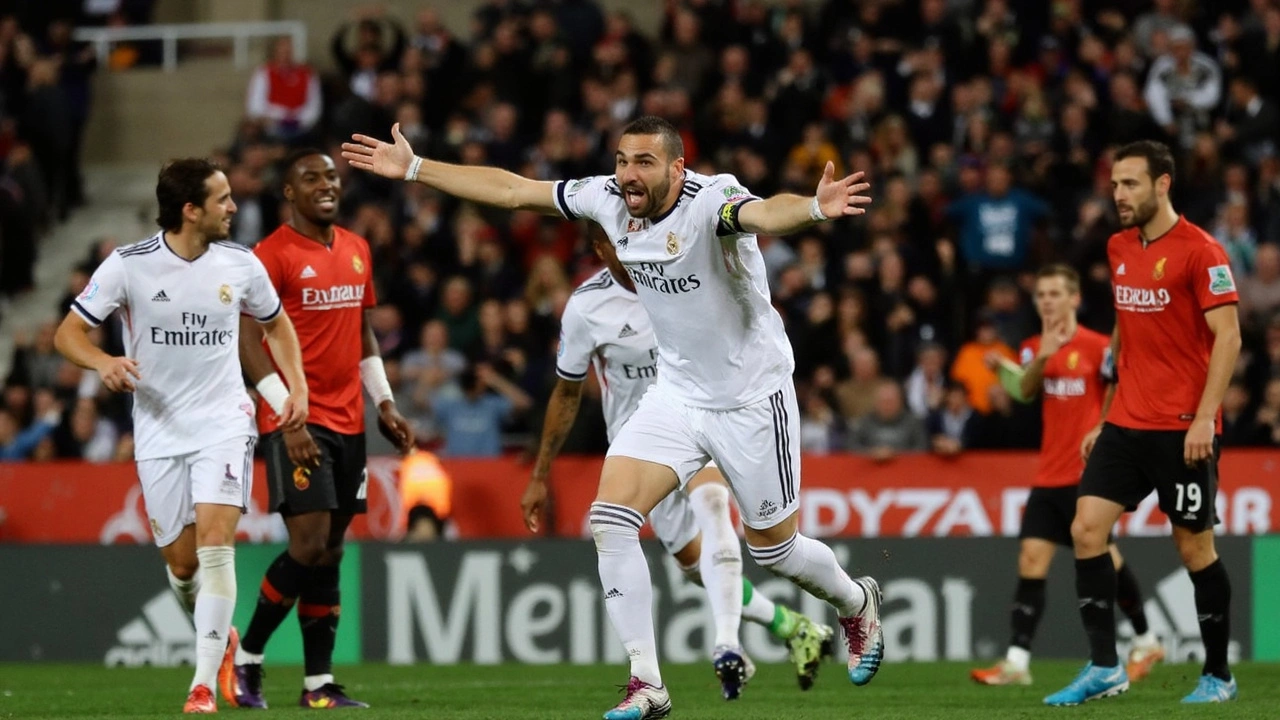La Liga – Your Hub for Spanish Football Updates
When talking about La Liga, the top professional football league in Spain, featuring 20 clubs that battle every season for the coveted title. Also known as Primera División, it draws worldwide attention because of its high‑skill play, historic clubs, and star‑studded line‑ups. Below, we break down the league’s core components and why it matters to fans across the globe.
Key Players and Their Impact
One of the biggest draws for La Liga fans is the presence of global icons. Lionel Messi, Argentinian forward who spent over two decades at Barcelona, renowned for his dribbling, vision, and record‑breaking goal tally still influences the league’s style even after his move abroad. His rivalry with Cristiano Ronaldo, Portuguese striker famous for his physicality, aerial prowess, and prolific scoring record at Real Madrid shaped an era that boosted La Liga’s global TV deals and sponsorships. The Messi‑Ronaldo dynamic illustrates a semantic triple: "La Liga showcases elite talent, and elite talent drives worldwide viewership". Their legacies keep the league in conversations about the sport’s greatest standards.
Beyond these legends, clubs like Barcelona, a Catalan powerhouse known for its possession‑based "tiki‑taka" philosophy and youth academy La Masia and Real Madrid, the Madrid‑based giants celebrated for their record European titles and star‑studded rosters continue to attract top talent and generate intense rivalries. The league demands strong youth development systems, making academies a key attribute; this relationship can be expressed as "La Liga requires robust youth academies to sustain competitive balance".
International tournaments also intersect with La Liga’s calendar. The recent UEFA Nations League match where Portugal beat Poland 5‑1, highlighted by a spectacular bicycle kick from Ronaldo, reminded fans that national team performances often echo back into club form. This creates the triple: "National team success influences La Liga player confidence". As players rotate between club duties and national duties, coaches adapt tactics, and fans follow the narrative across competitions.
Financial health and broadcasting rights remain pivotal. La Liga’s revenue model, which splits TV income among clubs based on performance and viewership, directly affects transfer budgets. Teams that finish higher enjoy larger payouts, enabling them to sign marquee players. This economic link can be phrased as "La Liga’s revenue distribution enables clubs to attract star talent". The league’s strategic moves, like embracing digital streaming platforms, aim to broaden its audience beyond Europe.
Stadium atmospheres add another layer. Whether it’s the electric vibe at Camp Nou or the historic aura of Santiago Bernabéu, matchday experiences shape fan loyalty. Clubs invest in modernizing facilities, which in turn improves matchday revenues and community engagement. Here we see the triple: "Stadium upgrades enhance fan experience, which fuels La Liga’s cultural relevance".
Looking ahead, the upcoming season promises fresh storylines: a new generation of home‑grown forwards, tactical shifts under incoming managers, and the ever‑present chase for the title. Below, you’ll find a curated list of articles covering everything from match analyses and player interviews to transfer rumors and league statistics. Dive in to stay ahead of the curve and enjoy a deeper look at the forces that drive Spanish football today.
